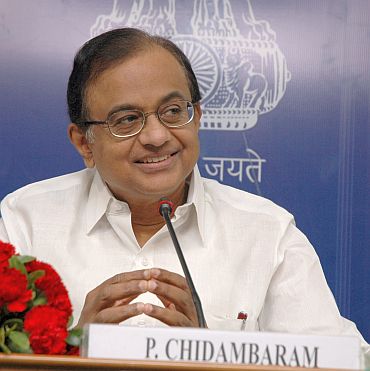
Home Minister P Chidambaram on Thursday said there are indications of the involvement of an Indian module in the Mumbai blasts on July 13 that killed 26 people.
This is the first time that the government has pointed towards the involvement of a homegrown terror group for the three explosions in the metropolis.
The home minister also said all over the world, right-wing fascist forces were on the rise and India is no exception to it.
"While no conclusion has been reached, all indications point to an Indian module," Chidambaram said about the Mumbai blasts, adding that perhaps it could be the same module that carried out a blast in German Bakery in Pune last year.
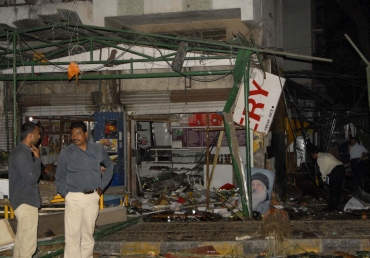
He said that while finger-pointing took place for every terror incident towards the neighbouring country, a clear reference to Pakistan, there is also an existence of home grown terror modules, as also right-wing fascist forces.
"We cannot live in denial. We cannot close our eyes to facts. There are home grown modules, Indian modules. They do not belong to one religion," Chidambaram said.
He said the Pune and Mumbai blasts are "two major blots" in the last 32 months since he assumed the charge of home minister. "I accept it," he said.
Chidambaram said another mistake was to point fingers at a particular religion whenever a bomb blast took place.
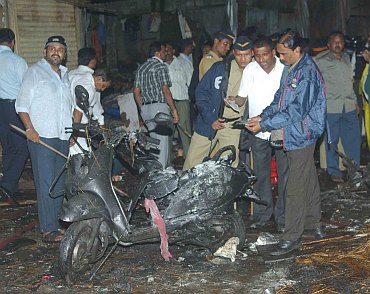
Describing the period from 2002 to 2008 as the worst phase of terrorism related violence, Chidambaram said there was a "failure to recognise" the growth of the Students Islamic Movement of India and the Indian Mujahideen in these years at the political and government level.
He said that security forces have so far smashed 51 terror modules in the last two years.
"We have successfully busted a number of modules," he said.
The home minister said terrorism has taken a new dimension as it not only affects the nation's security but may even affect the nation's survival as one entity.
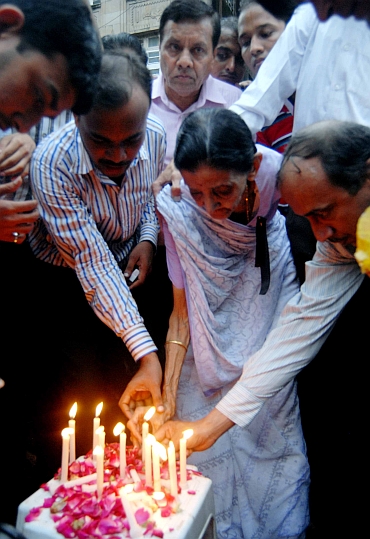
He said that India lived in the most troubled and vulnerable neighbourhood in the world as the epicentre of terrorism has shifted to Afghanistan and Pakistan from West Asia.
"As long as the epicentre of terrorism is in this region, we continue to be under the shadow of terror and continue to be vulnerable," he said.
Chidambaram said that considerable improvement has been noticed in the intelligence machinery both at the state and at the central level.
He said the Centre was receiving cooperation from chief ministers of all the states including those ruled by the opposition parties.
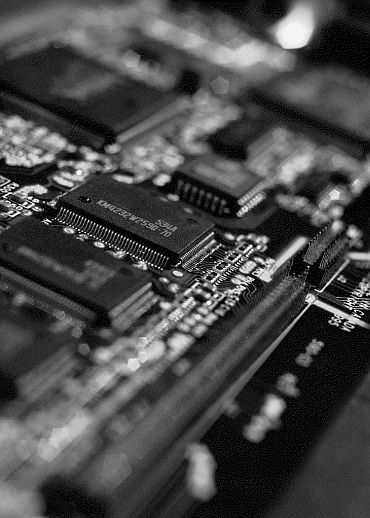
While the trial process in India was slow, the government in the last few months has invested thousands of crores of rupees into police modernisation and recruitment, Chidambaram said.
Citing terror attacks in other parts of the world, he said it was a myth that the United States was free from any terror attack after 9/11.
The home minister said the National Investigative Agency has been a success story while the National Security Guards have been empowered and expanded.
The NATGRID (national intelligence network) will be in place in the next 18 months and the entire software for the system will be built by an Indian company. No foreign company will be involved in this process, Chidambaram said.
He noted that the prime minister has said there will be a full fledged discussion on the NCTC, which will subsume the NATGRID.